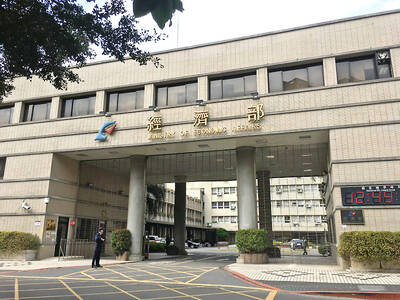President Ma Ying-jeou (馬英九) would not address the two sides of Taiwan Strait as “two nations” in describing cross-strait relations, the Presidential Office said yesterday.
“According to the Constitution, the Republic of China [ROC] is a sovereign nation, and mainland China is an ‘area’ under the structure of the ROC Constitution,” Presidential Office Spokesman Wang Yu-chi (王郁琦) said.
“We do not recognize the Chinese communist authorities’ sovereignty. We only hold a non-denial attitude toward its existence in the ‘Mainland area,’” Wang said.
Wang made the remarks in response to a report by the Chinese-language Liberty Times (the Taipei Times’ sister paper) about changes made by the Presidential Office to Ma’s wording after a meeting with US Representative James Sensenbrenner Jr on Wednesday.
Meeting the US congressman in the Presidential Office, Ma discussed the government’s signing of an economic cooperation framework agreement (ECFA) with China and called on the US Congress to supports Taiwan’s efforts to sign a bilateral extradition agreement with the US.
A press release the Presidential Office issued to media at about 12pm on Wednesday quoted Ma as saying that his administration expected the signing of an ECFA to “institutionalize the more than NT$100 billion [US$3.1 billion] trade volume between the two nations.”
In a press release on the Presidential Office Web site later in the day, however, the term “two nations” was replaced with “two sides.”
Wang said the phrase had been used by “mistake” by a new employee and that the Presidential Office made the correction immediately after discovering the mistake. The president would not make such a mistake, he said.
Wang said the term used by the government reflected the “status quo” across the Taiwan Strait under the Constitution and that such a constitutional structure was revised by former president Lee Teng-hui (李登輝) and followed by the Democratic Progressive Party government.
“It also reflects the political reality of the Strait. [The description] shows no signs of weakness. Instead, it highlights the sovereignty of the ROC,” Wang said.

LIMITS: While China increases military pressure on Taiwan and expands its use of cognitive warfare, it is unwilling to target tech supply chains, the report said US and Taiwan military officials have warned that the Chinese People’s Liberation Army (PLA) could implement a blockade within “a matter of hours” and need only “minimal conversion time” prior to an attack on Taiwan, a report released on Tuesday by the US Senate’s China Economic and Security Review Commission said. “While there is no indication that China is planning an imminent attack, the United States and its allies and partners can no longer assume that a Taiwan contingency is a distant possibility for which they would have ample time to prepare,” it said. The commission made the comments in its annual

DETERMINATION: Beijing’s actions toward Tokyo have drawn international attention, but would likely bolster regional coordination and defense networks, the report said Japanese Prime Minister Sanae Takaichi’s administration is likely to prioritize security reforms and deterrence in the face of recent “hybrid” threats from China, the National Security Bureau (NSB) said. The bureau made the assessment in a written report to the Legislative Yuan ahead of an oral report and questions-and-answers session at the legislature’s Foreign Affairs and National Defense Committee tomorrow. The key points of Japan’s security reforms would be to reinforce security cooperation with the US, including enhancing defense deployment in the first island chain, pushing forward the integrated command and operations of the Japan Self-Defense Forces and US Forces Japan, as

‘TROUBLEMAKER’: Most countries believe that it is China — rather than Taiwan — that is undermining regional peace and stability with its coercive tactics, the president said China should restrain itself and refrain from being a troublemaker that sabotages peace and stability in the Indo-Pacific region, President William Lai (賴清德) said yesterday. Lai made the remarks after China Coast Guard vessels sailed into disputed waters off the Senkaku Islands — known as the Diaoyutai Islands (釣魚台) in Taiwan — following a remark Japanese Prime Minister Sanae Takaichi made regarding Taiwan. Takaichi during a parliamentary session on Nov. 7 said that a “Taiwan contingency” involving a Chinese naval blockade could qualify as a “survival-threatening situation” for Japan, and trigger Tokyo’s deployment of its military for defense. Asked about the escalating tensions

The Ministry of Economic Affairs said it plans to revise the export control list for strategic high-tech products by adding 18 items under three categories — advanced 3D printing equipment, advanced semiconductor equipment and quantum computers — which would require local manufacturers to obtain licenses for their export. The ministry’s announcement yesterday came as the International Trade Administration issued a 60-day preview period for planned revisions to the Export Control List for Dual Use Items and Technology (軍商兩用貨品及技術出口管制清單) and the Common Military List (一般軍用貨品清單), which fall under regulations governing export destinations for strategic high-tech commodities and specific strategic high-tech commodities. The